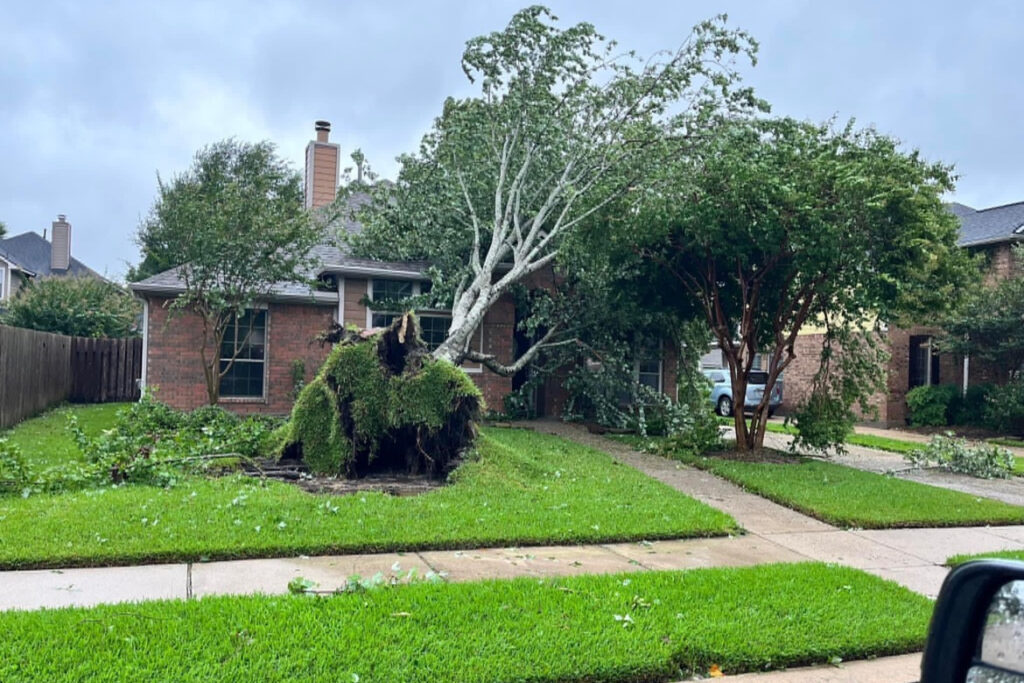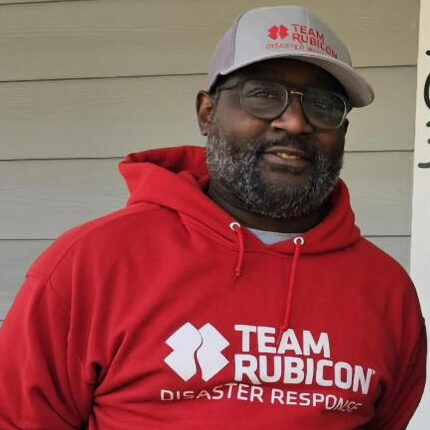The universe has an uncanny sense of humor. I have been in disaster relief for about 11 years, including serving as a disaster recovery specialist for Texas, helping people displaced by disasters get emergency rental assistance, and, since 2022, working for Team Rubicon as the manager of client services. It’s fair to say I’ve spent the last 11 years working with people on their worst days.
Over the last few months, I’ve been getting entangled in the technical aspect of disaster response and have felt myself losing empathy and sympathy with the task of trying to meet certain deadlines in the application for disaster relief.
Then came Hurricane Beryl, and my family and I were hit pretty hard. We were without electricity for nearly a week, and internet service and cell towers were down.
As soon as it was safe to leave the house after Hurricane Beryl had exited the Houston area, my wife and I went out and did some recon work of our own. We found elderly people—and some young ones—who did not know where to even start. Some had new generators and did not know how to start them, where to position them etc., so we showed them. We also cut some of the trees that were blocking our one-way-in, one-way-out neighborhood. It was the least we could do.
Normally, my family is on the advocacy side of a disaster, however, finally being on the disaster-stricken side, I was reminded of what some of the survivors we work with at Team Rubicon have felt prior to being introduced to us and our Greyshirts. Something as simple as being low on gas, having ATMs down, and having stores accept only cash can cause a major disruption in the lives of any family. For those among us with the fewest resources to spare—including the elderly, people on fixed incomes, and the working poor—the aftereffects of a disaster can be just devastating. Add to those stresses and pressures of things like short tempers, supply and price shocks that cause hoarding and scarcity of resources, gas station parking lot fights, and people not knowing how to work a four-way stop sign, and a disaster can cause real trauma.

After being without electricity for six days, we personally saw the impact it was having on the temperaments of our sons and our pet. Besides the hurricane damage, the heat and the humidity were a challenge within itself. I’ve been through several floods, but the no-electricity challenge was a different animal. Then, to top it all off, we got our own denial for FEMA assistance, which reminded me again of how helpless some can feel during and after a disaster.
As my family continues to try to recover from Hurricane Beryl and I reflect on this disaster, I can’t help but think how often we can get caught up in the hustle and bustle, and start placing “purpose” on the back burner, unintentionally. Surviving the disaster of Hurricane Beryl and its aftermath has reminded me of what our clients have gone through (much worse) prior to being introduced to our organization.
This experience has reignited the fire that I had when I first began operating in the disaster space many years ago. I’m grateful for this humbling experience, and for the reminder that our clients truly need our assistance and support. Today I want to thank all of Team Rubicon’s Greyshirts for what you do! It’s a different ball game when you become the client and not the one offering assistance.

Brian Andrus is a U.S. Army veteran who has served as a manager of client services in Team Rubicon’s long term recovery program since 2022.



